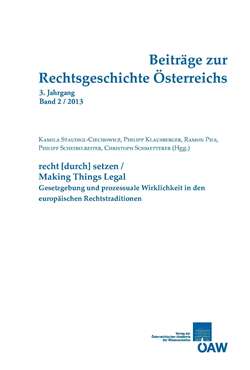
Beiträge zur Rechtsgeschichte Österreichs 2 / 2013, pp. 386-394, 2014/01/30
recht [durch] setzen - Making Things Legal.
Gesetzgebung und prozessuale Wirklichkeit in den europäischen Rechtstraditionen

The article examines the question of whether the unrestricted appeal privileges (“privilegia de non appellando illimitata”), which were granted to the electors of the Holy Roman Empire, proved themselves in legal practice of the Imperial Aulic Council (“Reichshofrat”). Following result can be given: The unrestricted appeal privileges served their purpose. The rare number of appeals introduced by subject of the electors as well as the low number of attempts to avoid the unrestricted appeal privileges manifests this fact. The attempts to avoid were launched by various forms of complaint (eg. querela nullitatis or iustitia denegata). Moreover the article shows that these requests had little or no chance of success. The Imperial Aulic Council let these requests either undecided or it refused them. Finally the unrestricted appeal privileges can be considered as one of the strongest tools in the development of the electorates to more independent territories.